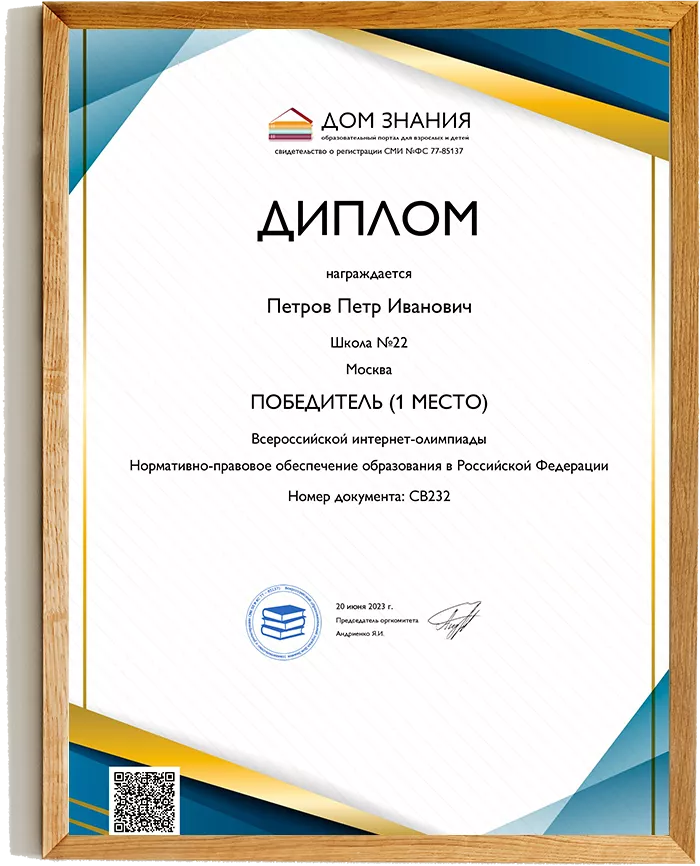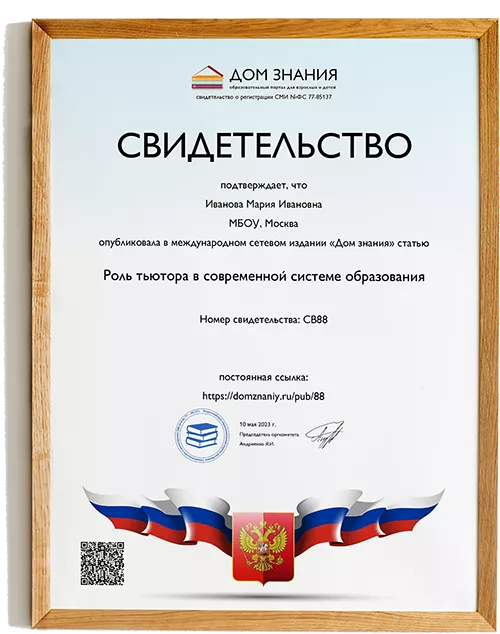Разработка открытого урока общеметодологической направленности (систематизации знаний) в 5 классе с использованием мультимедиа по английскому языку (учебник Афанасьева О.В., Михеева И.В. “Rainbow English”) учителя английского языка (Мелякина Наталья Викторовна, «Луховский лицей», городской округ Саранск, Республика Мордовия)
Цель: Вывести учащихся на монологическое высказывание по теме “ Your favorite holidays in Russia or in England”
Деятельностная цель: научить детей структуризации полученного знания, развивать умение перехода от частного к общему и наоборот, научить видеть каждое новое знание, изученный способ действий в рамках всей изучаемой темы.
Содержательная цель: научить обобщению, развивать умение строить теоретические предположения о дальнейшем развитии темы, научить видению нового знания в структуре общего курса, его связь с уже приобретенным опытом и его значение для последующего обучения.
Задачи: Развитие навыков аудирования, чтения, работы с диалогами, говорения и монологических высказываний по теме урока.
Сопутствующие задачи: Рассказать учащимся об истории появления Санты в Англии, традиций и обычаев празднования Рождества (и других праздников).
Оборудование: разработка урока – систематизации знаний, компьютер, мультипроэктор (интерактивная доска), учебник, рабочая тетрадь с печатной основой, карта, технологическая карта, программа урока.
В ходе урока ученики могут наиболее глубоко и полно систематизировать и закрепить весь предлагаемый материал, получить и отработать навыки, необходимые для реального общения и высказывания собственного мнения на английском языке. Изучение иностранного языка и в самом деле может быть увлекательным и весёлым занятием. С помощью современных средств мультимедиа можно испытать настоящее «погружение» в живой иностранный язык, получить массу возможностей для изучения и запоминания новых слов и речевых оборотов, а также для развития разговорных навыков и построения монологических высказываний.
План урока:
1. Приветствие
2. Беседа с дежурным
3. Исполнение песни (учащимися)
4. Проверка лексических знаний учащихся (вставьте слова) игра «морской бой»
5. Это интересно
6. Фонетическая разминка (отработка звуков и произношения)
7. Повторение пройденного грамматического материала: прилагательные, степени сравнения прилагательных, правило построения общих вопросов в Present и Past Simple и ответов на них.
8. Проверка навыков монологической речи
9. Исполнение песни (учащимися)
10. Подведение итогов, выставление оценок, задание на дом.
Ход урока:
1. Приветствие
Good morning. I’m glad to see you. Take your seats.
2. Беседа с дежурным
(Учитель приводит примерные варианты вопросов и примерные ответы учащихся.)
… how are you?
Fine, thanks.
…
are
you ready for the lesson?
Yes, I am.
What day is it today?
Today is
… .
Who is absent today?
All are present.
OK, let’s begin our lesson.
Teacher: Well, children, we have an unusual lesson. Today you’ll be an excellent team of brilliant Russian scientists who are going to visit England. You’ll travel on the ship “April Flower”. So, let’s go!
3. Исполнение песни (учащимися)
You’re very friendly persons and I want you to sing our song about friendship.
Song about friendship
You and me we are best friends
Our friendship never ends
Yes, We do we look alike
But I know it is all right
I like coffee you like tea
I like to skate, you like to ski
We have different points of view
But I like to be with you
You and me we are best friends
Our friendship never ends
I will always stand by you
And you know it is true
Friends are happy when you glad
They will never make you sad
Friends will help you anyway
Anytime and any day!
I like to play with you so much
We will always be in touch
I will give you what you need
You are my best friend indeed!
You and me we are best friends
Our friendship never ends
I will always stand by you
And you know it is true (two times)
https://yandex.ru/video/preview/14915930962775488787 (ссылка на видео песню (караоке))
4. Проверка лексических знаний учащихся (вставьте слова) игра «морской бой».
Oh, I see pirates! They're trying to fight us! Let's defeat them with our knowledge! Do you know how to play in “Sea Battle”?
Can you see Russian words on the blackboard? Your task will be, translate these words and write them down in the crossword puzzle which is in the form of a pirates’ ship.
(to go abroad, a capital city, to write a letter, to do a lot of things, Red Square, to live near the sea, an old hotel. abroad, capital, city, hotel, letter, sea, square, thing, begin — began, meet — met, do — did, read — read, drink — drank, run — ran, eat — ate, see — saw, give — gave, take — took, go — went, write — wrote, have — had) ) ездить заграницу, столица, написать письмо, сделать много вещей, Красная площадь, жить рядом с морем, старый отель, заграница, столица, большой город, гостиница, письмо, море, площадь, вещь, начинать, встречать, делать, читать, пить, бегать, кушать, смотреть, давать, брать, идти, писать, иметь)
5. Это интересно.
Name the words that you associate with Russia.
Примерные ответы учащихся: Red Square, Kremlin, Moscow, balalaika, matryoshka, bear, Russian language, Russian flag, Russian hymn, hat with earflaps, Putin.
Well, dears, you see we’ll come to the land! It is England!
Name the words that you associate with England.
Примерные ответы учащихся: Big Ben, Buckingam Palace, Piccadilly, London Eye, Trafalgar square, queen, Diana Spenser, the Beatles, lord, Sherlock Holmes, red double-decker, tea, fog, gentleman, lady, Santa Clause.
I think it is time to
go ashore and
have some
eat
in the nearest café.
Oh, look! We are in England
on Christmas
eve
!
Christmas is the most popular holiday especially for children.
(
Просмотр видео
https://www.youtube.com/watch?v=EMu-s9FH4Zc&t=97s
)
(
https
://
yandex
.
ru
/
video
/
preview
/15606567753107370892
)
(
http://dtg.adminu.ru/2013/07/festivals-video/
)
на выбор
, можно обрезать
But you know, that the most popular traditional character of Christmas is St. Nickolas, now better known as Santa Claus or Father Christmas. St. Nicolas has long been the patron saint of children in Catholic and Greek Orthodox churches. St. Nicolas is also the patron saint of Russia, which explains his warm winter clothes. He is represented as a cheery old gentleman with a red cloak and long white beard riding in a sleigh pulled by reindeer. This habit of his is probably derived from the myth of the ancient Norse god Wodin who rode on a magical flying horse across the sky in winter to reward people with gifts. These different characters combined to make the present-day Santa Claus whose name from the Dutch name for Father Christmas , which is Sinter Claas.
Well done, good for you!
Now y
ou know a lot about England!
So, open your books at page 36 – 37 ex. 6. Listen to the text and you can take it as an example to tell us about your favorite holidays in Russia or in England. (можете вставить готовое аудиоприложение или начитать сами)
Ex. 6. page 36 – 37 In Russia we have school holidays in spring, in summer, in autumn and in winter. Our summer holidays are the longest. They usually begin in June and finish in August. School begins in September. Russian schoolchildren say that they like their summer holidays very much. Many children spend their holidays in the country. Some boys and girls travel in Russia and abroad with their parents. Russia is a very big country, bigger than many countries in the world. There are a lot of interesting places in it. Last summer my parents and I travelled to Nizhny Novgorod.
Nizhny Novgorod is an old city on the Volga. My sister Kate, our parents and I went to Nizhny Novgorod by train. To travel by train can be as comfortable as to travel by plane or by sea. We liked the city of Nizhny Novgorod, one of the biggest and oldest cities in Russia. We saw the Kremlin with its thirteen towers and went to Pokrovskaya Street to buy some presents for our friends. Kate and I enjoyed our holidays. We are going to visit Nizhny Novgorod again next summer and see more of the place.
6. Фонетическая разминка (отработка звуков и произношения)
High, long, big, cosy, good, beautiful, interesting, sunny, pleasant, happy, afternoon, vegetables, museums, weekends, ice cream (Repeat after me and give the translation of these words).
7. Повторение пройденного грамматического материала : прилагательные, степени сравнения прилагательных, правило построения общих вопросов в Present и Past Simple и ответов на них (Раздать таблицы и схемы, можно вывести на экран)
- Open your books at page 40, let’s do ex. 3, 4 and ex. 5 at page 41.
Ex. 3 page 40 Put the adjectives in the correct form
Example: London is (big) than his place.
London is bigger than his place.
The houses in London are (high) than in his place. The streets are (long) than in his place. The squares are (big). The hotels are (cosy) than in his place. The cars are (good) than in his small town. The shop windows in London are (beautiful) than in his place. The parks in London are (interesting) than in his small town. The weather in London was (sunny) than in his place. In the cafés he could eat (good) food than in his place. But soon he saw that the people in his town are (pleasant). When Ben was home from the capital, he was (happy) than in London.
Ex. 4 page 40 Say the same in the past.
Example: Mary does her flat every day.
Mary did her flat every day.
1) We meet in the afternoon to play a game of football.
2) My friend Steve runs better than me.
3) Jane has vegetables for lunch.
4) The Smiths go to museums at weekends.
5) My dad often takes me to the cinema.
6) Ben sees his friends, but not very often.
7) Alice reads a lot of books in summer.
8) Andy writes to us from abroad.
9) My mum gives me tea for breakfast.
10) Colin begins his days early.
11) We eat ice cream and drink juice in a cosy café at the end of the street.
Ex. 5 page 41 These are answers to the questions. What are the questions?
A. 1) ... ? — Yes, I often go abroad.
2) ... ? — No, we don’t travel in winter.
3) ... ? — Yes, Alice likes to visit her grandparents.
4) ... ? — No, Bob doesn’t often go to museums.
B. 1) ... ? — Yes, Tom wrote a letter yesterday.
2) ... ? — No, Bob didn’t eat his lunch.
3) ... ? — Yes, I did my room in the morning.
4) ... ? — No, Betty didn’t wash up after breakfast.
C. 1) ... ? — Yes, Moscow is the capital of Russia.
2) ... ? — No, they are not abroad now.
3) ... ? — Yes, John was in Canada in May.
4) ... ? — No, the Barkers were not in Scotland last autumn.
D. 1) ... ? — Yes, there are a lot of people there.
2) ... ? — No, there is not a cinema in the place where I live.
3) ... ? — No, there was not a bus stop in my street last year.
4) ... ? — Yes, there were many cars in the street.
8. Проверка навыков в монологической речи
And now I suppose you are ready to tell us some words about your favorite holidays in Russia or in England.
9. Исполнение песни (учащимися)
- Well, are you ready to go home? While we are doing to Russia, sing our song about friendship because I think all of you enjoy our travelling!
– Are you ready to sing a song?
- Yes, we are.
- Let’s do it.
Song – Песня
10. Подведение итогов, выставление оценок, задание на дом.
So dears, let’s summarize the results of our lesson.
- What have we done on today’s lesson?
- What new information have you received?
- What have we repeat today?
-You were all brilliant on today’s lesson. And I think it will be correct to put you all good marks!
- Your home task: exercise 2 at page 44.
- Thank you for the lesson.
- Good bye!


